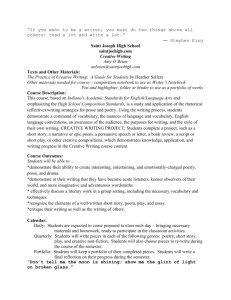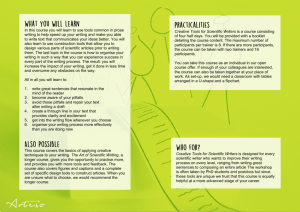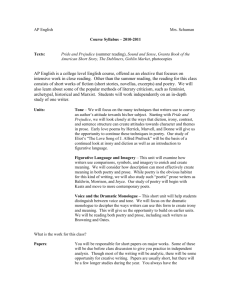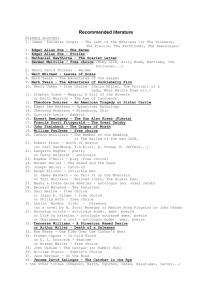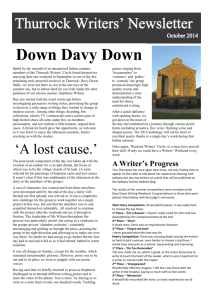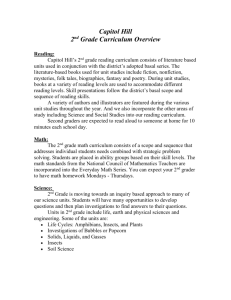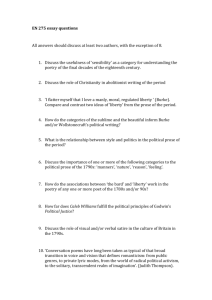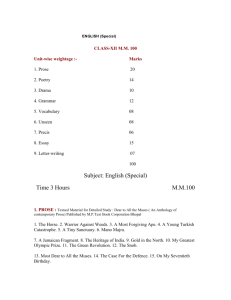"The New Colossus" (Statue of Liberty)
advertisement
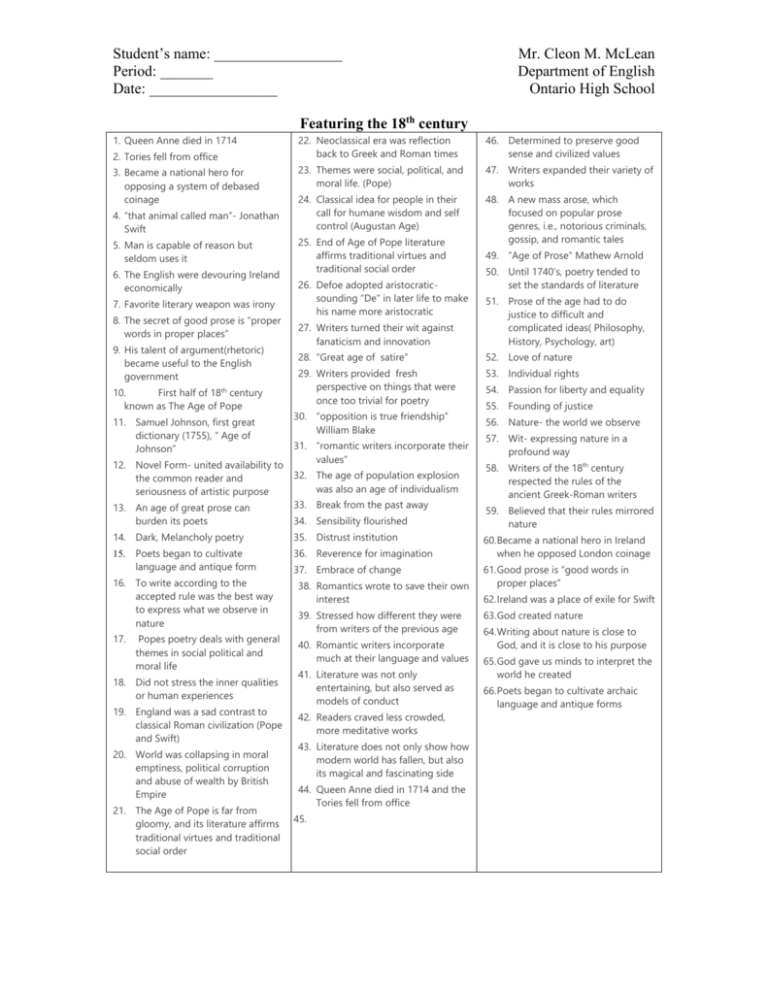
Student’s name: _________________ Period: _______ Date: _________________ Mr. Cleon M. McLean Department of English Ontario High School Featuring the 18th century 1. Queen Anne died in 1714 2. Tories fell from office 3. Became a national hero for opposing a system of debased coinage 4. “that animal called man”- Jonathan Swift 5. Man is capable of reason but seldom uses it 6. The English were devouring Ireland economically 7. Favorite literary weapon was irony 8. The secret of good prose is “proper words in proper places” 9. His talent of argument(rhetoric) became useful to the English government 10. First half of 18 century known as The Age of Pope th 11. Samuel Johnson, first great dictionary (1755), “ Age of Johnson” 12. Novel Form- united availability to the common reader and seriousness of artistic purpose 22. Neoclassical era was reflection back to Greek and Roman times 46. Determined to preserve good sense and civilized values 23. Themes were social, political, and moral life. (Pope) 47. Writers expanded their variety of works 24. Classical idea for people in their call for humane wisdom and self control (Augustan Age) 48. A new mass arose, which focused on popular prose genres, i.e., notorious criminals, gossip, and romantic tales 25. End of Age of Pope literature affirms traditional virtues and traditional social order 26. Defoe adopted aristocraticsounding “De” in later life to make his name more aristocratic 27. Writers turned their wit against fanaticism and innovation 28. “Great age of satire” 52. Love of nature 29. Writers provided fresh perspective on things that were once too trivial for poetry 53. Individual rights 30. “opposition is true friendship” William Blake 31. “romantic writers incorporate their values” 32. The age of population explosion was also an age of individualism 33. Break from the past away 14. Dark, Melancholy poetry 35. Distrust institution 15. Poets began to cultivate language and antique form 36. Reverence for imagination 17. Popes poetry deals with general themes in social political and moral life 18. Did not stress the inner qualities or human experiences 19. England was a sad contrast to classical Roman civilization (Pope and Swift) 20. World was collapsing in moral emptiness, political corruption and abuse of wealth by British Empire 21. The Age of Pope is far from gloomy, and its literature affirms traditional virtues and traditional social order 50. Until 1740’s, poetry tended to set the standards of literature 51. Prose of the age had to do justice to difficult and complicated ideas( Philosophy, History, Psychology, art) 13. An age of great prose can burden its poets 16. To write according to the accepted rule was the best way to express what we observe in nature 49. “Age of Prose” Mathew Arnold 34. Sensibility flourished 37. Embrace of change 38. Romantics wrote to save their own interest 39. Stressed how different they were from writers of the previous age 40. Romantic writers incorporate much at their language and values 41. Literature was not only entertaining, but also served as models of conduct 42. Readers craved less crowded, more meditative works 43. Literature does not only show how modern world has fallen, but also its magical and fascinating side 44. Queen Anne died in 1714 and the Tories fell from office 45. 54. Passion for liberty and equality 55. Founding of justice 56. Nature- the world we observe 57. Wit- expressing nature in a profound way 58. Writers of the 18th century respected the rules of the ancient Greek-Roman writers 59. Believed that their rules mirrored nature 60. Became a national hero in Ireland when he opposed London coinage 61. Good prose is “good words in proper places” 62. Ireland was a place of exile for Swift 63. God created nature 64. Writing about nature is close to God, and it is close to his purpose 65. God gave us minds to interpret the world he created 66. Poets began to cultivate archaic language and antique forms

